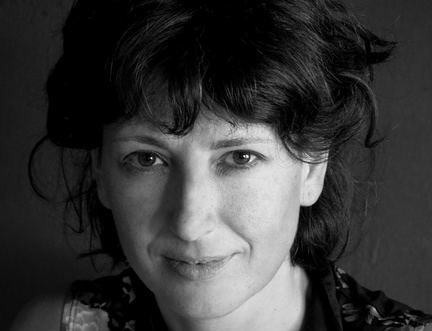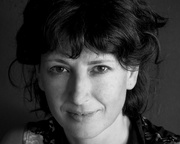As Vital To Our Soul
By Kapka Kassabova

In 2018, we commissioned 51 authors from 25 countries to write essays exploring ideas about freedom for The Freedom Papers, a publication produced in partnership with Gutter Magazine. Read on for Kapka Kassabova's essay, and visit guttermag.co.uk to purchase a copy of The Freedom Papers.
Tyranny begins in childhood. It may be that the task of growing up is to recognise and break away from that which tyrannises us, so we can thrive in the freedom that is ‘as vital to our soul as breathing to our body’ in Stefan Zweig’s words. They were uttered in 1941 in sorrow and hope (‘In This Dark Hour’).
To nurture a degree of freedom is a life’s work. The agents of tyranny encroach on all sides, and history teaches us that there is no such thing as ‘the end of history’, as Francis Fukuyama pre-empted at the fall of the Berlin Wall. Child of the Iron Curtain, I have never stopped seeing the ghost of iron curtains personal and collective, past and future, guarded by righteous men and women who smite you if you don’t conform with their certainty.
For me, tyranny began with a sense that you were guilty until proven innocent, that we were a society of cloned Ks, out of Kafka’s The Trial where K says to the policeman ‘I don’t know this law’, and the policeman replies: ‘So much the worse for you, then.’
In The Art of the Novel (1986), Milan Kundera discusses how Kafka instinctively drew his fiction from family dynamics which initiated him into the ‘technique of culpabilization’. All his work comes from a deep knowledge of what Kundera calls the family’s private totalitarianism. In a story called ‘The Judgement’, a man is accused by his father of some obscure transgression and ordered to drown himself. He obeys.
‘Power,’ Kundera writes nearly two generations after Orwell and Arendt, ‘as it grows ever more opaque, requires the lives of citizens to be entirely transparent.’
I think of how we use ever more opaque media, and how they use us. Imposing – through violence, hypnosis, seduction – a ‘life without secrets’ on its citizens, tyranny has diversified in our era, disguised as hipster trends, digital innovation, and – more familiarly – various exceptionalist clannish passions. The form changes, the principle remains.
On childhood holidays to the Black Sea near the Turkish border and to the Rhodope Mountains near the Greek border, we could almost see the other side – it looked the same as our side, from a distance – but we were barred from going there. We lived in an open-air prison and even a child knew, without having to be told, that the penalty for border-transgression was death. It was the same on the Turkish side, our ‘capitalist enemy’. A Turkish friend told me of a shepherd from his border village, who had waved to another shepherd across the border river. Turkish border soldiers saw him. He was given 14 years for treason.
When the borders opened in the ‘People’s Republics’ in 1990, the simple act of stepping across the line was an act of freedom so charged that inmates rushed onto the other side, with what an Albanian friend described as a ‘hysterical feeling of unreality’. We all felt history’s vertigo. Freedom, then, was the act of stepping across the deadly line, and there was no going back. But where tyranny has reigned, tyranny may return. Today, Bulgaria and Turkey are both self-tyrannised (the form changes, the principle remains). The Irish border, a scar still fresh in the land’s memory, may be ripped open afresh by those who have learned nothing from history.
Thirty years on, I returned to the demilitarised border zone, at a time when traumatised refugees walked in the border forests of Turkey, Greece and Bulgaria, along the same corridors once used by East Europeans transgressing the border. Some of those East Europeans were shot by border soldiers and buried in unmarked graves. I asked one survivor, a German artist in his sixties, why he had risked his life on that border, in 1971.
‘Because I wanted to see Paris,’ he said. ‘To be a free man in Paris.’
He had been captured, imprisoned, and tortured first by the Bulgarian Secret Services then by the Stasi, but I believed him when he said that he had no regrets. He had claimed his personal freedom – to be young before being old – and it had been worth it.
In a town on the Bulgarian-Turkish border, I met an Iraqi-Kurdish woman whose family were running from the incursions of ‘Islamic State’ into their home region.
‘We made a bid for Europe,’ she said, ‘but this is an open-air prison.’
They had been refused refugee status by the Bulgarian government and couldn’t travel on to Germany where they hoped to find work. Nor could they work in this depressed town once full of state-owned silk factories, and today full of casinos. Refugee camps were housed in former bases of the border army. This is where Europe officially begins. But what is Europe to her?
‘Europe is where you are not afraid,’ she said. Her three daughters were the same age I had been when our family made a bid to emigrate, in the post-communist midst of economic collapse and political chaos. I looked at the three daughters and a sentence from a novel came to me:
‘I had made it all the way to Marseilles and no misfortune had befallen me, none except the fact that the catastrophic state of the world coincided with my youth.’
Transit (1943) by Anna Seghers captures the war-time port-city of Marseilles, one of Europe’s last exits. With Africa almost in sight, the frantic refugees hope to reach Algeria. But only those with the right visas, and Marseille becomes a waiting corridor for the ‘possessed by departure’. Just like the Asia-Europe corridor of today.
Too many are hounded by the crudest form of tyranny – war. It is a sad but not irreversible irony that we Europeans who enjoy the privilege of subtler problems, have succumbed to the fear of refugees that has erected cynical new walls and began to corrode our own freedoms. The fear of refugees and of that which creates refugees have become blurred in the collective mind, at a cost. Fear breeds obedience, and ‘anticipatory obedience is a political tragedy,’ writes Timothy Snyder in On Tyranny.
What is fear but the tyrant within? The iron curtain was ostensibly there to protect us from them. But when I saw it, 30 years later, in the wild border forest where sections of it still stand, I saw that the barbs at the top were always pointing inwards.
Copyright © 2018, Kapka Kassabova. All rights reserved.
Supported by the Scottish Government’s Edinburgh Festivals Expo Fund through Creative Scotland.


 Major new partnership with Celtic Connections
Major new partnership with Celtic Connections 

